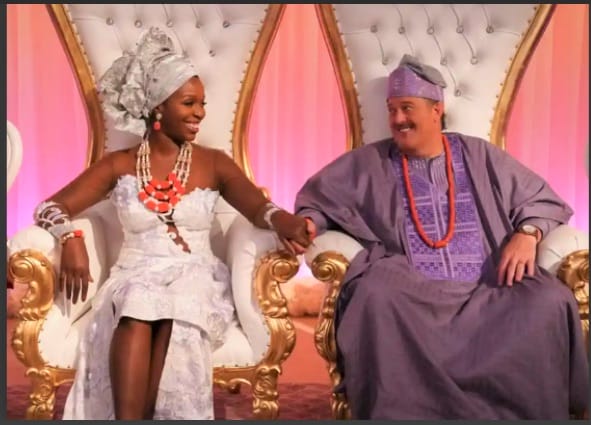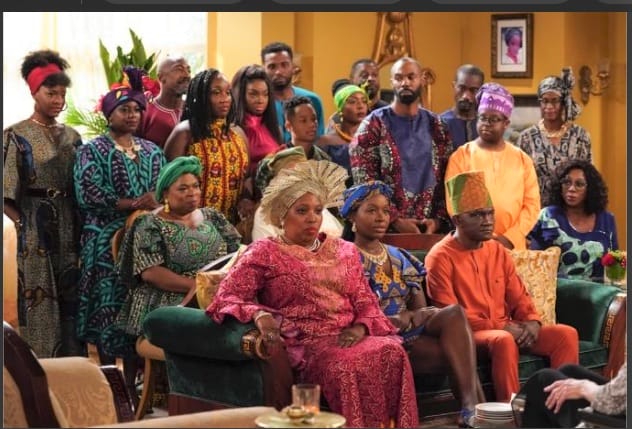Recently, I sat on a panel from Warner Bros. Television Group called “Her Story,” which presented women principals of new and returning fall shows. The panel was part of the summer CTAM Television Critics Association event, and among many shows, one series that interested me was “Bob Hearts Abishola” and its co-executive producer and co-creator Gina Yashere, who plays Kemi—a nurse who works at the same Detroit hospital as Abishola and is Abishola’s best friend. The series runs on CBS on Monday nights and stars Abishola, a cardiac nurse, who is a Nigerian immigrant played by Folake Olowofoyeku. She is now engaged to a white businessman named Bob—who is played by Billy Gardell. And although Abishola shuns Bob’s advances at first, by the beginning of Season 3, they are headed to the altar in Nigeria.
“Bob Hearts Abishola” is the first series to depict a Nigerian family in a comedy, and Yashere talked about the importance of this. “There’s quite a lot of me in this show. A lot of the stories – similar immigrant stories, people coming from somewhere else coming to America trying to raise their kids in America (and it doesn’t even have to be America), it can be anywhere,” Yashere said. “I was born and raised in England – a lot of Abishola’s story is based on my parents’ story. My mum and dad are from Nigeria. They came to England. They had us in England and were up against racism, misogyny, all those kinds of things that are very apparent all over the world. And it’s just the story of their love and their triumph of raising their kids in another country, away from home.
“And the ‘Bob Hearts Abishola’ story is just the coming together of the two families, the two cultures meeting, the fact that people from various backgrounds, no matter where they’re from, find that commonality. And it’s a story about love and inclusion, and just people coming together. Plus, I’m in the show as well because I wrote myself in because I wanted all the checks.”

She talked about the inclusion represented by the writers in the show. “We have a nice even split, men and women. Also, in my show, more than half the cast is Nigerian.” She says this helps with the show’s commitment to smash stereotypes.
“If you watched the first episode of Season 3 of our show, people were commenting and saying, ‘Oh, my gosh, we had no idea that Nigerian women live a certain way, that we had a certain image of that and how African people live. They have really nice houses; we were surprised by that.’ That’s why you need a good mix of people in the writers’ room, across gender, across sexuality, across race, to make sure that everything is covered, and covered properly.”
She added: “I didn’t like the way African people seemed to be depicted all the time. It felt like it was an image that had been just carried on way back from, I don’t know, Tarzan days, where Africans were seen a similar way.”
Yashere believes that some American viewers would only see Africa as one country—as opposed to a continent—and the show seeks to eliminate anti-immigrant sentiments that hashed up during the Trump era. “We wanted to just say, look, we’re just people. We’re just doing the same as you guys. We love the same. We want to send our kids to school. We want to work. We want to contribute. That’s what we’re doing.”
She noted some differences between American sitcoms and “Bob Hearts Abishola,” by adding: “In American shows, kids coming in and putting their dirty shoes up on the couch and taking a bottle of milk from the fridge and drinking it straight from the bottle – that would never happen in an African family. So even the small minutia of things, we had to get it right. And I think it makes for a great show.” And finally, Yashere spoke to one glaring issue with mainstream broadcast media. “Every immigrant family is enjoying it because it’s their story too. Let’s be honest, CBS is not the blackest channel, but we’re introducing it to an audience of people who may never have even fraternized with people from my culture. And they’ve grown to love the characters and the people. And so, as far as I’m concerned, that’s my job done.”






